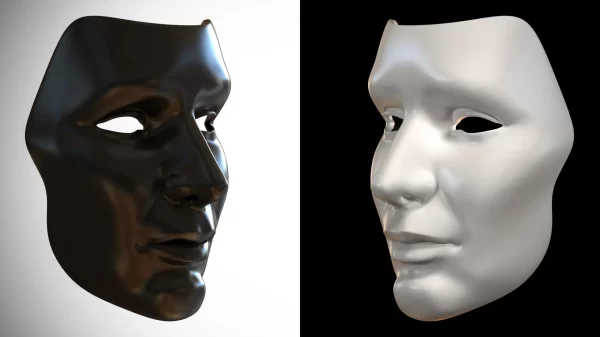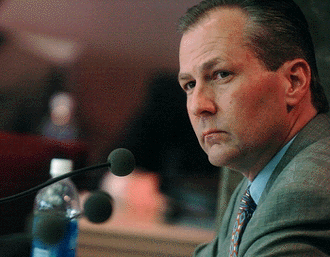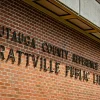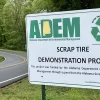By Lee Hedgepeth
Alabama Political Reporter
This article, “The Road to Lee County,” focuses on events involving current Alabama House Speaker Mike Hubbard, including his tactics as Alabama GOP Chairman in the “Storming of the Statehouse” in 2010, his actions in office as Speaker, the lead up to current grand jury empanelment, and his current role in the public corruption investigation that has left two ALGOP House Representatives a little less statesman and a little more jailbird.
“The Road to Lee County” is one in an ongoing series of articles focused on public corruption in Montgomery titled “Stealing the Statehouse,” an index of which is available on our home page.
Storming the Statehouse
Before he was Speaker of the Alabama House of Representative, Mike Hubbard, Auburn resident, was the Chairman of the Alabama Republican Party. Known for his brusque leadership skills, Hubbard was an aggressive fundraiser and clear public face for the GOP.
Using these skills, and with Obama’s hefty loss in the State in 2008 as wind at his back, Hubbard orchestrated what he labeled “Storming the Statehouse,” a Grand Ole Party comeback in the Alabama legislature. Though Hubbard and other top level Republicans such as Former Governor Bob Riley and current Senate leader Del Marsh had high hopes for 2010, both fundraising and campaigning with vigor, not even they could have expected the overwhelming outcome.
In the 2010 midterm election, for the first time since Civil War Reconstruction – 136 years as Alabamians were reminded over and over on yard signs and TV ads (136 Years Is Long Enough!) – the Alabama Republican Party won a supermajority in both houses of the legislature. They also retained the Governor’s office and other key statewide constitutional offices. GOP leadership gladly re-imagined their electoral and legislative goals, and even those were exceeded.
Then, though, the hype of midterms began to settle down. The legislature went into session, and day-to-day business began again in the political arena. The few incumbents and the many freshmen legislators became comfortable in the isolation of Goat Hill. The glow of the campaign and of the sweet victory were fading.
Searching the Storm
Then the road to Lee County really began. People began to talk, and information about alleged questionable campaigning and financing tactics behind the GOP takeover began to make its way through the Alabama political community.
With this, the Alabama Political Reporter began extensive investigative reporting on the topic.
Our research revealed widespread implication of campaign finance (and other) malfeasance, dating back from the State House’s “storming” up until today.
Facts pointed to Hubbard business interests, including Craftmasters Printing, of which he is company director, and Network Creative Media benefitting monetarily from the 2010 legislative “storming” to the tune of two million dollars.
A 2012 audit of campaign records by the Attorney General’s office (which Hubbard said was “not an audit”) revealed hundreds of thousands of dollars given directly to Craftsmasters, with even more being given to Network Creative Media and subcontracted from Majority Strategies.
APR analysis of Fair Campaign Practices Act records identified eighteen 2010 GOP candidates whose campaigns expended money on Hubbard-business services, as well as four Political Action Committees, or PACs, which were also Hubbard creations.
Comments of several Republicans inside the 2010 elections documented the sentiment that the now Speaker towed the hard line with then-candidates, now legislators, making no qualms that he was a big financial player in the planned takeover. Others in the legislature made comments about the woes of making “Mike mad.”
Additionally, records also revealed that Hubbard was central — along with Del Marsh — in acquiring $350,000 from the Poarch Creek Indians, proponents of gaming; several thousand dollars were then directed to Hubbard business ventures.
With an ironically bipartisan finesse, at the same time they benefitted from a relationship with the Poarch Creek gaming interests, Hubbard’s companies simultaneously received money from Citizens for a Better Alabama (CBA), a nonprofit founded to oppose gaming. The CBA founder admitted to APR that Bob Riley, a Speaker ally, directed him to invest money in Hubbard’s groups.
Despite all these revelations, the Speaker of the House had no reservations, announcing in October of 2012 the formation of a “Storm PAC” aimed at protecting Republican incumbents from reelection danger with a high priced fundraiser.
Speaker in the Statehouse
Once in office, after the beautiful disaster of 2010, Speaker Hubbard became the subject of ethical controversy.
APR broke a story early in his tenure on oversized silk plants used for decoration in Hubbard’s offices paid for by taxpayers, which the Speaker then kindly refunded from – not his own pocket – campaign cash.
Speaker Hubbard also gained notoriety with the revelation of the fact that $30,000 had been used for furniture, paint, and carpeting for the renovation of a lawmakers’ cloakroom located just outside the House chamber, next to the Speaker’s suite.
Moreover, APR reported just months after the contract was signed that Hubbard was the recipient of a $12,000 a month salary from Southeast Alabama Gas District for his and another business interest, Auburn Network’s services in “marketing and site selection.” He did not disclose, though, to either the public, to the Ethics Commission, or to his legislative colleagues, that his wife was first cousins with the group’s then-CEO.
Later in a Friday news dump, a spokesperson announced that the contract with SEAGD had been canceled because of overreaction and speculation by “liberal” media sources, which they did not identify, a strategy that would become ever so familiar in his later tenure as Speaker.
Then APR reported on a financial agreement between Hubbard, Auburn Network, and the American Pharmacy Cooperative Incorporated, an agreement in which the Speaker was hired to offer “membership growth strategies” for an undisclosed amount of pay.
Ethics Commission Director James Sumner expressed that Hubbard had notified him of the deal verbally, but that he had not seen, reviewed, or asked for the text of the contract. Despite Sumner admitting the Speaker had not gone into the details, he decided sight unseen that there were no ethical questions to be addressed.
Later, in the 2013 Legislative session, Hubbard voted for a bill that would have provided exclusive Medicaid prescription rights to ACPI, the company in question, worth between $12-20 million. Again, as in the situation with SEAGD, Hubbard chose not to disclose the contract before it was brought to the public’s attention by APR and other Alabama news media.
Finally, as recently as this month, APR has written in depth on Hubbard’s FCPA filings, which show contributions from both PACs and businesses whose funding is highly contentious.
Should We Have Seen?
APR has also reported on new information showing questionable actions on the part of Hubbard in his early capacity as leader of his Auburn Network. In the wake of a stint Hubbard had in the Auburn sports department, he decided to create a marketing firm with the belief he had the ability to receive business from AU. He did. After a while, though, Hubbard’s Auburn Network began losing assets.
In addition, The Friends of Auburn Society, an AU alumni group, wrote a letter to the Auburn University President asking that the school cease business with Hubbard’s business assets amid questions of unethical behavior.
Entering Lee County
All of these events culminated when, in mid-2013, a special grand jury was empanelled in Lee County, of which Speaker Hubbard is a resident.
Attorney General Luther Strange recused himself from the proceedings, citing inside knowledge, and appointed Special Prosecutor Matt Hart, famous in the state as an ephemeral but highly effective public corruption attorney, most notably in the Larry Langford-Birmingham affair, as well as the two-year community college scandal. In the latter, Hart faced off against J. Mark White, who Speaker Hubbard has now retained as counsel in the Lee County matter.
Originally, any reports about anything to do with Lee County were hard to come by.
Early on, White and Hubbard’s chief of staff were seen together in Lee County.
More coverage came with Senate Leader Del Marsh testifying for six hours before the grand jury, and the rumor mill jumped into overdrive when Hubbard’s fundraiser Kate Anderson – who played a vital role in the 2010 campaign – was seen leaving the courthouse in tears.
Then, months later, as the 2014 legislative session began to close, the flood gates broke wide open, and Mike Hubbard’s boat began to sink.
Many legislators were confirmed to have testified since Sine Die, the last day of the legislative session, and many lobbyists are speculated to have done so.
Representatives Paul Lee and Steve Clouse have testified. The Mayors of both Opelika and Dothan have testified. In addition, House GOP primary candidate Josh Pipkin has testified, as well as several lobbyists from different firms with which lawmakers consulted during the 2013 Regular Session of the Alabama Legislature.
But two other witnesses before the grand jury are not just confined to that role. They have also earned the label “defendant,” and will likely be central in any legal action against the Speaker: Republican Representatives Greg Wren, Montgomery, and Barry Moore, Enterprise, have both been charged criminally in relation to the investigation by the Lee County Grand Jury.
Hubbard: An April Fool?
On April Fools Day this year, Representative Wren was arrested and convicted of a misdemeanor charge of using his office for personal gain, beginning a series of revelations that continue to rock Goat Hill to this day. His plea deal, which directly implicates Hubbard, required that Wren resign his office, pay $24,000 in restitution to the State’s General Fund, and – importantly – that he testify whenever need in the Lee County Grand Jury proceedings.
Wren obtained confidential Medicaid documents from the Legislative Fiscal Office and illegally provided them to executives at RxAlly, a company from which he received $8,000 a month under a consulting contract.
Representative Wren also successfully introduced language into last year’s General Fund Budget that gave RxAlly’s affiliate, American Pharmacy Cooperative, Inc., a complete monopoly over some Medicaid programs in the State, a move that provided thousands of new customers to pharmaceutical companies.
The only other person mentioned by name in the agreement between the acting AG and former Representative Wren is Speaker Hubbard. “Wren, and others affiliated with pharm co-op, had various meetings with members of the Alabama Legislature in which Wren sought legislative-support for the Co-op Exclusive Language,” the agreement says.
“Among the meetings Wren participated in while attempting to obtain legislative support for the Co-op Exclusive Language were meetings attended by the Speaker of the Alabama House of Representatives.”
The plea deal goes on to assert that Hubbard “endorsed” the language, and directed its insertion: “After meeting with Wren and others, and reviewing the Co-op Exclusive Language, the Speaker of the House endorsed the Co-op Exclusive Language and directed staff to add it to Medicaid’s section of the General Fund Budget. The Co-op Exclusive Language became a part of the House of Representatives substitute version of the General Fund Budget. The substitute version was voted on and approved by the House of Representatives on April 23, 2013.”
In addition, Speaker Hubbard had not informed Wren or other relevant legislators of his “financial relationship” with APCI:
“Subsequent to the meetings, in which Wren participated, wherein the Speaker of the House reviewed and endorsed the Co-op Exclusive Language, Wren was informed by a lobbyist, who had represented Pharm Co-op in those meetings, that the Speaker of the House had an ongoing financial relationship with Pharm Co-op. The Speaker of the House had not informed Wren, or others Wren interacted with in those meetings, of that ongoing financial relationship.”
Speaker Hubbard has repeatedly denied nearly all of this, saying Wren’s arrest and conviction, “has nothing to do with me.”
“I had no knowledge of that deal,” he told members of the press including the Alabama Political Reporter on Sine Die, “and I can tell you that nothing involving Representative Wren involves me.”
Hubbard has also said that although his media company, Auburn Network, has done work with APCI in other states, the company – which is based in Alabama – had never contacted him about work in the state or about inserting language into the budget.
He also disputes the assertion that he directed the 23 monopolizing words be inserted into the budget, telling the Associated Press‘ Phil Rawls: “Saying I directed that to be done, that didn’t happen.”
In his interview with AP, Hubbard blamed the heat on his position – not his actions – saying: “Ultimately it is political. You look at the position I have and it’s pretty easy to see why I’ve become the target,” Hubbard said, though he did not – of course – forget to sneak in a line about being attacked by “liberal special interests” and “internet mudslingers.”
Moore Problems for Hubbard
Nearly a month later, on April 24, Representative Barry Moore surrendered to law enforcement officials in Lee County and was charged with four felonies: two perjury counts and two counts of misleading investigators.
The charges against Moore stem from an interview that investigators had with the Representative in which he denied claims that he threatened his primary opponent, Joshua Pipkin, with the loss of a hundred jobs in the district if he did not drop out of the race. In that questioning, Moore also denied that Speaker Hubbard told him to relay such threats as well as denied he delivered those threats. These statements on Moore’s part led to his indictment, which was issued by the Lee County Grand Jury
Moore’s claims are relatively easily debunked, as the entire phone conversation Moore had with Pipkin was recorded, and has been released by the press, including by APR. In the recording, Moore clearly states that Hubbard wanted him to relay the threat to Pipkin, even saying that the Speaker would “rain holy hell” on him if necessary.
Moore has denied the allegations and is seeking to have the charges against him dismissed.
After Moore was arrested, Speaker Hubbard’s office issued a statement implying that the grand jury process was being used for political purposes, a strategy that Moore’s attorneys have used thus far in his criminal proceedings
In fact, Hubbard has gone even further to support Moore. The deposit for the indicted Representative’s legal team, headed up by former Democratic Lt. Gov. Billy Baxley, has been effectively payed for by a transfer from Hubbard’s infamous STORM PAC totaling $25,000, with tens of thousand even rolling in the very day Moore was arrested.
Storming the Courthouse, Leaving the Speakership?
Representative Moore had his first hearing earlier this week, with his lawyers and the State sparring over the defense’s motion to dismiss, which the judge has now taken under advisement, to rule on at a later time.
At the hearing, Moore’s legal team could not match up to the prosecution. No less than five different Hubbard attorneys were present in the courtroom to observe the hearing.
One surprising aspect of the possible ramifications of indictments comes from other GOP leadership, and may be the reason Hubbard is relatively calm during this hurricane. Anonymous ALGOP insiders have informed APR that if only 1-10 indictments are handed down, Hubbard’s Speakership might be safe. Only with 10-15 indictments would a problem come, sources say.
Alabama Political Reporter has no knowledge of Grand Jury testimony, as it is protected by law.
All reporting referenced here has been independently verified and reported by APR here on alreporter.com.
Most information referenced here comes from APR articles indexed in our collection of stories called “Stealing the Statehouse,” available here, or articles contained in our archives, available here.
Stay tuned to alreporter.com for continuous coverage of the situation. Also follow us on Twitter @alreporter and on Facebook at facebook.com/alreporter















































